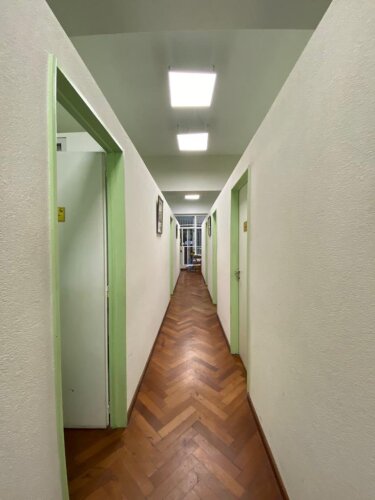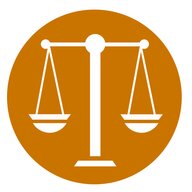Best Restructuring & Insolvency Lawyers in Buenos Aires
Share your needs with us, get contacted by law firms.
Free. Takes 2 min.
List of the best lawyers in Buenos Aires, Argentina
About Restructuring & Insolvency Law in Buenos Aires, Argentina
Restructuring and insolvency refers to the legal processes applicable when individuals or companies face financial distress and cannot meet their debts as they become due. In Buenos Aires, Argentina, these proceedings are governed mainly by the National Bankruptcy Law, which outlines the procedures for debt renegotiation, financial restructuring, and, when necessary, liquidation of assets. These laws provide both protection and clarity for debtors and creditors, helping facilitate fair and orderly outcomes in complex financial situations.
Why You May Need a Lawyer
If you or your business is struggling with unpaid debts, receiving creditor claims, or facing possible bankruptcy, you may benefit from legal advice in restructuring and insolvency matters. Here are some common situations where legal assistance is essential:
- Entering negotiations with creditors to restructure debt terms
- Filing for voluntary insolvency proceedings
- Responding to insolvency claims filed by creditors
- Understanding your legal rights and obligations as a debtor or creditor
- Seeking alternatives to bankruptcy, such as preventive agreements (acuerdos preventivos extrajudiciales)
- Defending against asset seizures or forced liquidations
- Ensuring compliance with legal procedures to avoid personal liability
- Protecting directors and company officers from potential allegations of misconduct
Lawyers experienced in this field can help you assess your financial position, explore possible solutions, and represent your interests at every stage of the process.
Local Laws Overview
The main legal framework for restructuring and insolvency in Buenos Aires, and throughout Argentina, is the National Bankruptcy Law No. 24.522. This law governs both personal and corporate insolvency and contains the following key features:
- Preventive agreements (concurso preventivo): Allow financially troubled debtors to reach an agreement with creditors on debt restructuring to avoid bankruptcy.
- Bankruptcy (quiebra): A judicial process whereby the assets of an insolvent debtor are liquidated to pay off creditors in accordance with the statutory order of priority.
- Out-of-court agreements: Known as “Acuerdos Preventivos Extrajudiciales,” these allow the debtor and creditors to agree on a restructuring without court intervention, subject to homologation by a judge.
- Priority of claims: The law sets out an order of priority for payments to creditors, with secured creditors, labor claims, and certain state claims at the top of the list.
- Directors' liability: Company managers and directors can face personal liability if they are found to have acted fraudulently or in bad faith leading up to insolvency.
- Cross-border insolvency: The Buenos Aires courts have mechanisms for addressing insolvency cases involving assets or creditors from other countries, although international cooperation may require additional procedures.
It is important to consult with local professionals since specific procedural requirements and timings can significantly affect your case and possible outcomes.
Frequently Asked Questions
What is the difference between bankruptcy and preventive agreements?
Bankruptcy (quiebra) is a court-supervised liquidation of assets to pay creditors when a debtor is insolvent. Preventive agreements (concurso preventivo) focus on restructuring debts with the aim of allowing the debtor to continue operating.
Who can file for insolvency proceedings in Buenos Aires?
Both individuals and companies can initiate insolvency proceedings if they are unable to meet their financial obligations as they become due. Creditors can also request insolvency proceedings against a debtor under certain conditions.
How long do insolvency proceedings typically last?
Timeframes vary depending on the complexity of the case, number of creditors, and whether the process is a preventive agreement or a full bankruptcy. Some cases can be resolved in a few months, while others may take several years.
Can I keep running my business if I file for a concurso preventivo?
Yes, debtors are usually allowed to continue operating their business under court supervision during preventive agreements. The goal is to enable the debtor to restructure obligations while maintaining operations.
What happens to my employees during bankruptcy or restructuring?
Employee claims are given special priority in insolvency proceedings. In many cases, efforts are made to preserve jobs during restructuring. However, if liquidation is required, employment contracts may be legally terminated, subject to compensation according to labor laws.
Are all my debts discharged after bankruptcy?
Not all debts are necessarily discharged. Some, such as tax and social security obligations, may remain enforceable. The final outcome depends on the nature of the debts and the specific proceedings.
Can foreign creditors participate in Argentine insolvency proceedings?
Yes. Foreign creditors have the same rights as local creditors, although they may need to comply with certain procedural requirements and may be subject to currency exchange regulations.
What is the order of payment to creditors?
The Bankruptcy Law establishes a statutory order: typically, secured creditors and certain labor claims are paid first, followed by tax claims, and then unsecured creditors.
Can directors or shareholders be held personally liable?
Yes. If company managers or directors acted with gross negligence, fraud, or violated the law, courts can order them to be personally liable for company debts, especially if they harmed the creditors.
What alternatives are there to judicial bankruptcy?
Alternatives include preventive agreements, out-of-court settlements, direct negotiations with creditors, and informal restructuring plans. These options can provide faster and less disruptive solutions if all parties cooperate.
Additional Resources
For more information and support, consider contacting the following resources:
- Commercial Courts of Buenos Aires (Juzgados Comerciales)
- Argentine Ministry of Justice (Ministerio de Justicia y Derechos Humanos de la Nación)
- Argentine Bar Association (Colegio Público de Abogados de la Capital Federal)
- Chamber of Commerce of Buenos Aires (Cámara de Comercio de Buenos Aires)
- Local insolvency professionals and accountants with experience in judicial processes
Next Steps
If you are facing financial difficulties or are involved in a legal dispute related to restructuring or insolvency in Buenos Aires, consider the following actions:
- Gather all relevant financial documents, contracts, and correspondence related to your debts and assets
- Seek a consultation with a lawyer experienced in restructuring and insolvency law in Buenos Aires
- Evaluate the available options, including preventive agreements, out-of-court resolutions, and formal insolvency filings
- Follow your lawyer's advice on communication with creditors and preservation of assets
- Act promptly to maximize your options and avoid unnecessary legal complications or personal liability
Prompt and informed legal counsel can significantly impact your future, ensuring the most favorable result possible under Argentine law.
Lawzana helps you find the best lawyers and law firms in Buenos Aires through a curated and pre-screened list of qualified legal professionals. Our platform offers rankings and detailed profiles of attorneys and law firms, allowing you to compare based on practice areas, including Restructuring & Insolvency, experience, and client feedback.
Each profile includes a description of the firm's areas of practice, client reviews, team members and partners, year of establishment, spoken languages, office locations, contact information, social media presence, and any published articles or resources. Most firms on our platform speak English and are experienced in both local and international legal matters.
Get a quote from top-rated law firms in Buenos Aires, Argentina — quickly, securely, and without unnecessary hassle.
Disclaimer:
The information provided on this page is for general informational purposes only and does not constitute legal advice. While we strive to ensure the accuracy and relevance of the content, legal information may change over time, and interpretations of the law can vary. You should always consult with a qualified legal professional for advice specific to your situation.
We disclaim all liability for actions taken or not taken based on the content of this page. If you believe any information is incorrect or outdated, please contact us, and we will review and update it where appropriate.
















